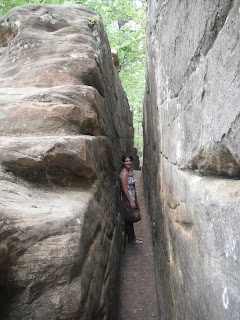 I arrived at Mariela's house in Lexington last Thursday. Since getting here, Mariela and I have had some inspiring and informative meetings in preparation for the upcoming interns, convergence, and overall development of the ENGAGE project here in Kentucky.
I arrived at Mariela's house in Lexington last Thursday. Since getting here, Mariela and I have had some inspiring and informative meetings in preparation for the upcoming interns, convergence, and overall development of the ENGAGE project here in Kentucky.Just before coming to Kentucky I read an article in The Nation, highlighting the growing grassroots movement against unjust coal mining practices in Appalachia. The article pointed to the increasing success of this movement, as it focuses more and more on the effects of coal on people here in the region -- rather than solely the effects on the environment and climate change, oftentimes the focus at the national level. It has been helpful to read the news about the current political situation surrounding coal and then hear about it from the perspectives of various people and organizations in Appalachia.
I was able to meet Rick Handshoe on Saturday. Since Lisa Jackson's announcement about potential EPA regulations, it seems that people here are finding a few outlets where their voices are heard. Rick has continued on steadily, steadily monitoring his and neighboring communties' streams and water supplies, and reporting his findings as needed. But now, he has been able to speak directly with various influential figures in the world of coal and coal regulation. In fact, last week Rick didn't even have to report that the stream near his property became darker than is natural or healthy -- the inspectors came themselves. The mining company has attempted to hold back pollutant discharges with curtains, but seeing that these aren't working they are transitioning to aerators. He says these efforts are all a good sign -- small steps towards meeting regulations. But he and other community members are preparing themselves in case spoken promises are not kept.
On Monday (on the way I saw Reclamation --below), we were honored to follow through on KFTC organizer Kevin Pentz's invitation to the Alliance for Appalachia meeting at Natural Bridge State Park. We heard from about a dozen organizations about the major work they had been doing, and got to see in person some of the most active and influential activists in the region. We were able to give a short presentation about our project and to express interest in future collaboration with all of them. Everyone there was very positive about the reports and interested in further distribution. In fact, next time we should consider a kick-off party, and we should definitely put out a press release...!

Most organizations at the Alliance meeting seemed relatively positive, though cautious (maybe in shock?) about the recent political discussions. The organizations are all doing incredible work -- related to scientific and legal research, organizing and advocacy, media, etc. -- to educate themselves and others about legislation, the different directions (positive and negative) each piece of legislation could go, and the effects that will have on people and the environment. I cannot express my level of respect for those doing this work, especially those in mine-affected communities, where mentality, health, and relationships of the people there are not the most conducive to such hard work. As Rick said, he is not an angry person by nature, but sometimes you have to be the one to step up and get angry in order to get anything done. This alone can take a toll on one's energy.
It was also a real pleasure to deliver a whole stack of reports to the Floyd County Chapter Meeting Monday night. Audra, one of the members at the meeting, rushed off to distribute some to the library and various other places in town, and everyone took some to show around their community. I hope it also made for a good visual introduction to KFTC's work and the issues for one local woman, who was at her first KFTC meeting.
Beyond these great opportunities to meet active folks in the area, Mariela and I have been moving forward with planning for interns and the convergence. We visited Morehead, where the convergence will take place, the day after I got to Lexington. It is a beautiful campus in a small town, and I hope that especially everyone who has been involved with the human rights report can make it out to the convergence in order to support our relationships here and the project (register here!). On Monday we invited Floyd County community members, in addition to those present at the Alliance for Appalachia meeting.
All in all, I am overwhelmed at what this summer will bring!...much more to come.
